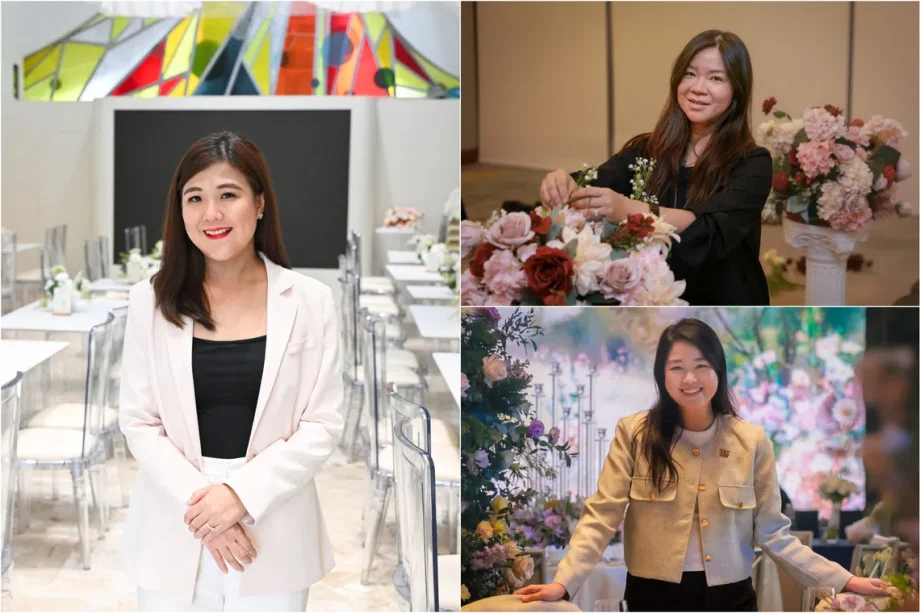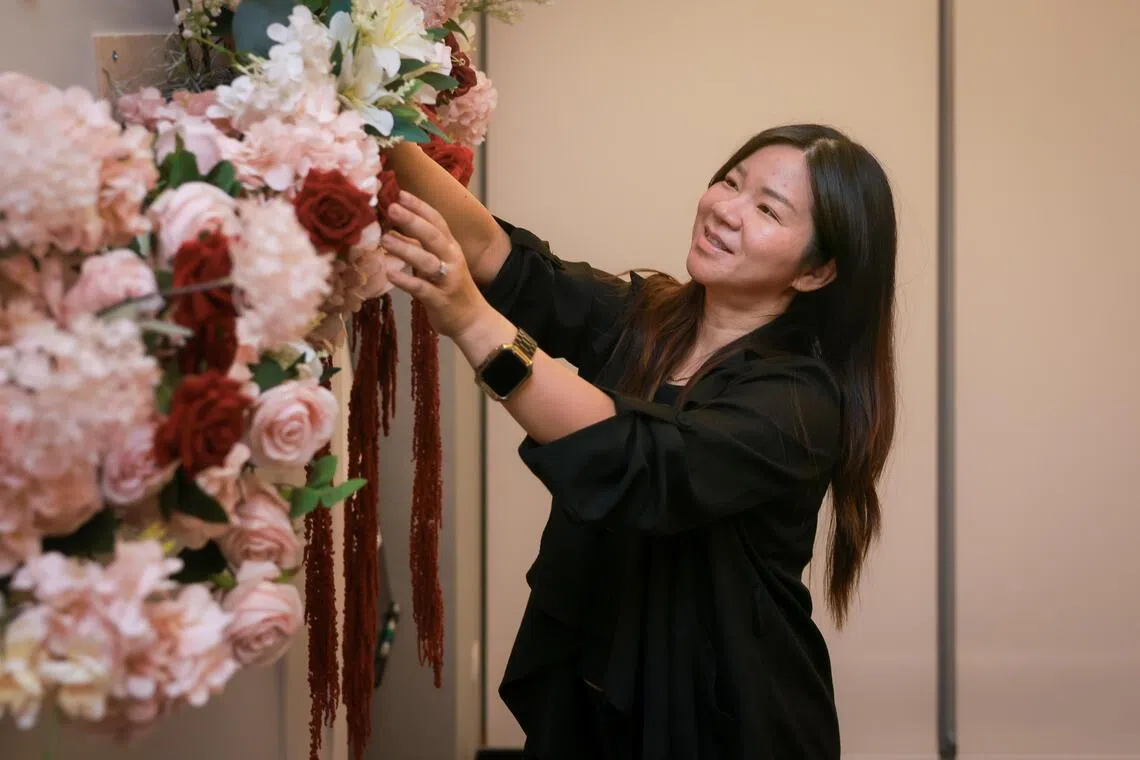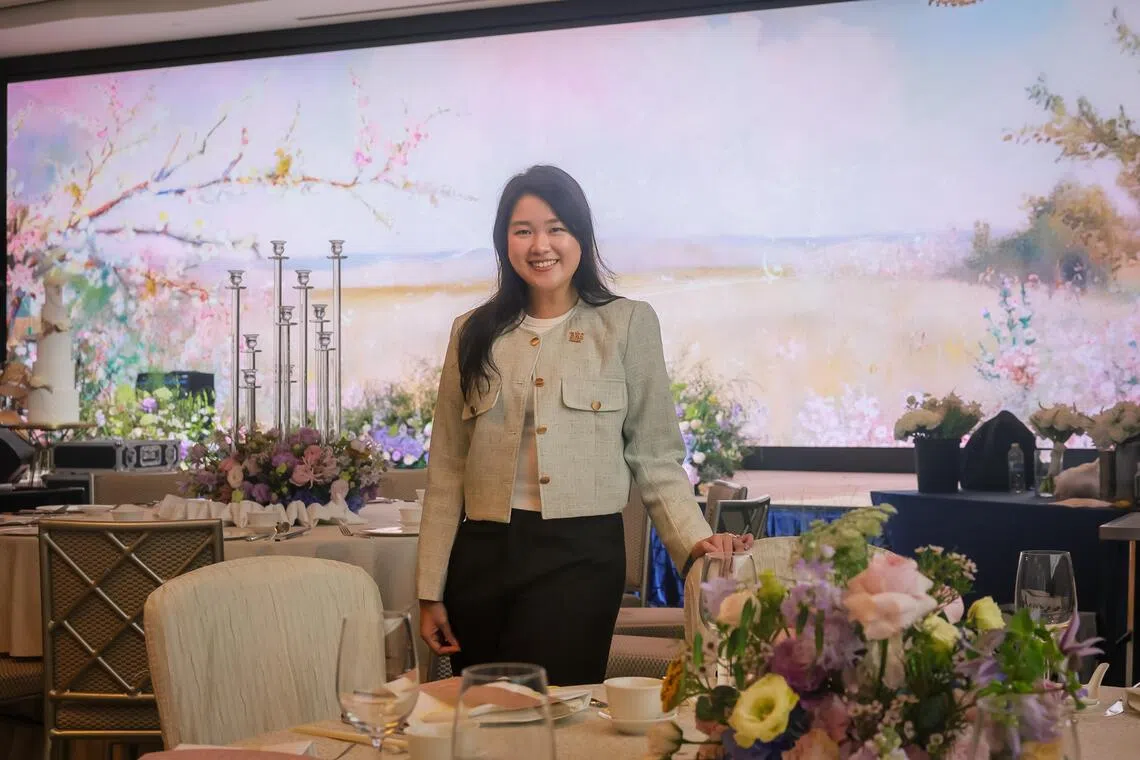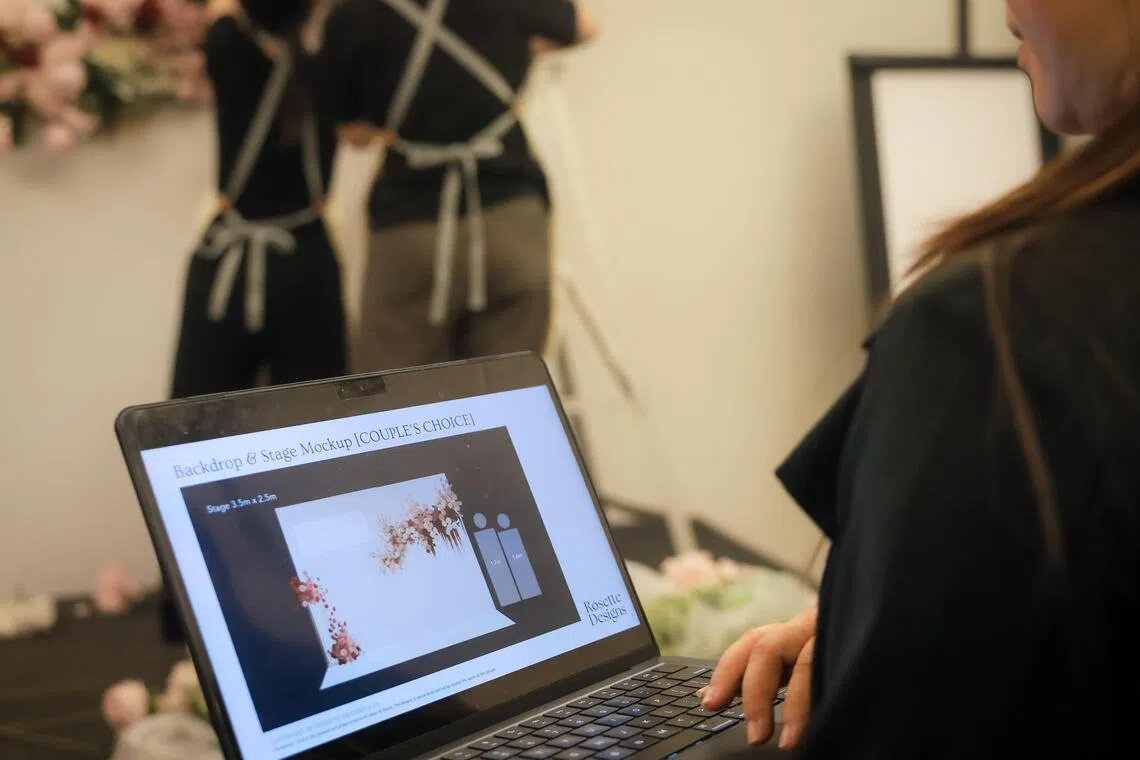SINGAPORE – Whenever soon-to-be newlyweds came to her, wedding planner Belicia Tan used to think she would have to guide them through the A to Zs of making a fairy-tale wedding come true. But that was before artificial intelligence (AI) became big.
Now, most of those looking to tie the knot are coming to her with their wedding already planned out, thanks to AI.
Planners The Straits Times spoke to say about 50 to 70 per cent of clients are now engaging them for coordination instead of planning services, compared with five years ago – before ChatGPT came about – when about 30 per cent of clients sought coordination services.
While wedding planning comprises everything – from coming up with the colour scheme to picking the vendors – wedding coordination deals only with events on the day, such as making sure the programme is followed to the minute.
With AI doing the planning, couples can fork out less money by opting for coordination packages. Checks by ST found that coordination packages range from about $2,000 to $3,500, less than half the price of planning, which costs between $7,500 and $10,000.
Planners have also adopted AI tools, which they say speeds up their ability to carry out administrative and technical tasks.
While AI is not without its flaws – both planners and couples have noticed the tech has issues with accuracy, and lacks critical thinking and the ability to connect emotionally – planners say AI is here to stay.
When planning their wedding, Ms Hui Ting, 27, and Mr Shawn, 30, used ChatGPT to guide them on matters like Chinese wedding traditions and the wedding flow.
The couple, who did not share their full names for privacy reasons, did not hire a wedding planner and said ChatGPT was a sufficient enough resource that provided information at no cost.
“We could consult (it) anywhere and at any time… and we were able to plan for our wedding smoothly without concerns such as texting late at night and being charged extra,” they said.
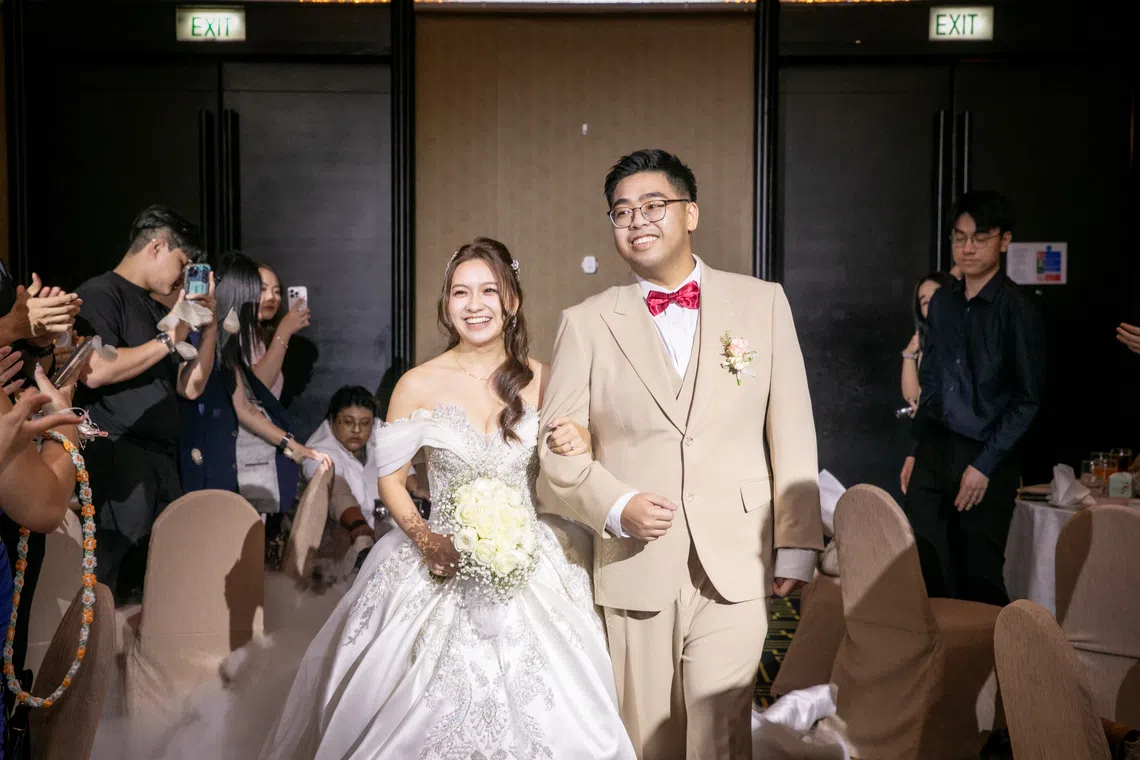
Ms Hui Ting and Mr Shawn tied the knot on May 25.
PHOTO: COURTESY OF HUI TING
Manna Weddings’ Ms Tan said about 70 per cent of her clientele, compared with 30 per cent pre-ChatGPT, have been coming to her for coordination instead of planning services.
She now devotes her skills to coordinating the wedding day itself, ensuring that the wedding programme is adhered to and goes smoothly. “We’re embracing this change,” she said.

Wedding planner Belicia Tan uses ChatGPT to help her draft a wedding programme, which she then refines.
ST PHOTO: SHINTARO TAY

